It’s rare for a day to pass without yet another apocalyptic warning about the future of Planet Earth. Today was no exception, with headlines stating that our oceans are in crisis. They are alarming, but thankfully we have a unique opportunity to help them recover and thrive.
Healthy oceans play a vital role in sustaining life on our planet, by providing a source of food for billions of people, and helping to regulate the climate.
But this week the Intergovernmental Panel on Climate Change (IPCC) released a special report containing stark scientific evidence that confirms our worst fears – the climate crisis is an oceans crisis.
The CO2 we’re pumping into the atmosphere by burning fossil fuels is warming our planet. This is causing ice sheets and glaciers to melt at an alarming rate and sea levels to rise, threatening to displace millions.
This CO2 is also being absorbed by seawater. This is bad news; it makes the ocean more acidic and harms unique ecosystems, like beautiful warm-water coral reefs.
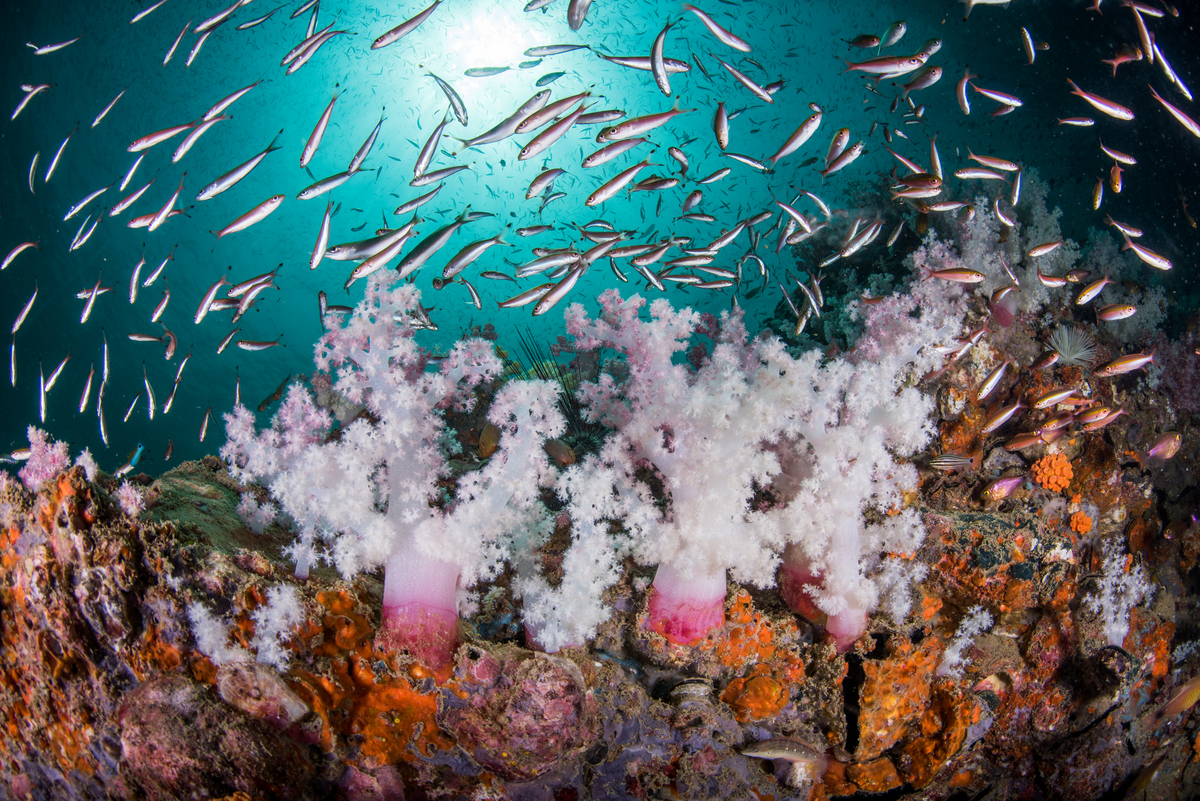
Andaman sea, Satun, Thailand. A large school of Banana fusilier (Pterocaesio pisang) swims over the colourful field of soft corals (Dendronephthya sp.) in the reef of Hin Khao, two small pinnacles in the sea of Satun, Thailand, known for massive biological diversity. The reef of Hin Khao is largely covered with colonies of soft corals which thrive on the sediments from the nutrient-rich water of this area. However this pristine environment could be decimated with proposed plans to construct the deepwater port at Pakbara.
Why does this matter? Other than, of course, the threat of a loss of vital marine biodiversity and ecosystem health, marine life can help us mitigate against climate change impacts. It naturally absorbs and stores carbon, locking it away in the ocean. Plants in coastal areas, such as mangrove forests and seagrass meadows, trap carbon in underwater sediment and soil. And sea creatures capture it in the food chain, most of which eventually sinks to the deep ocean seabed in the bodies of dead animals.
We can’t rely on this natural process to tackle climate change alone. We also need to halt carbon emissions, but it’s vital that we protect areas where carbon is stored, and the wider ocean, or the climate crisis will become even worse.
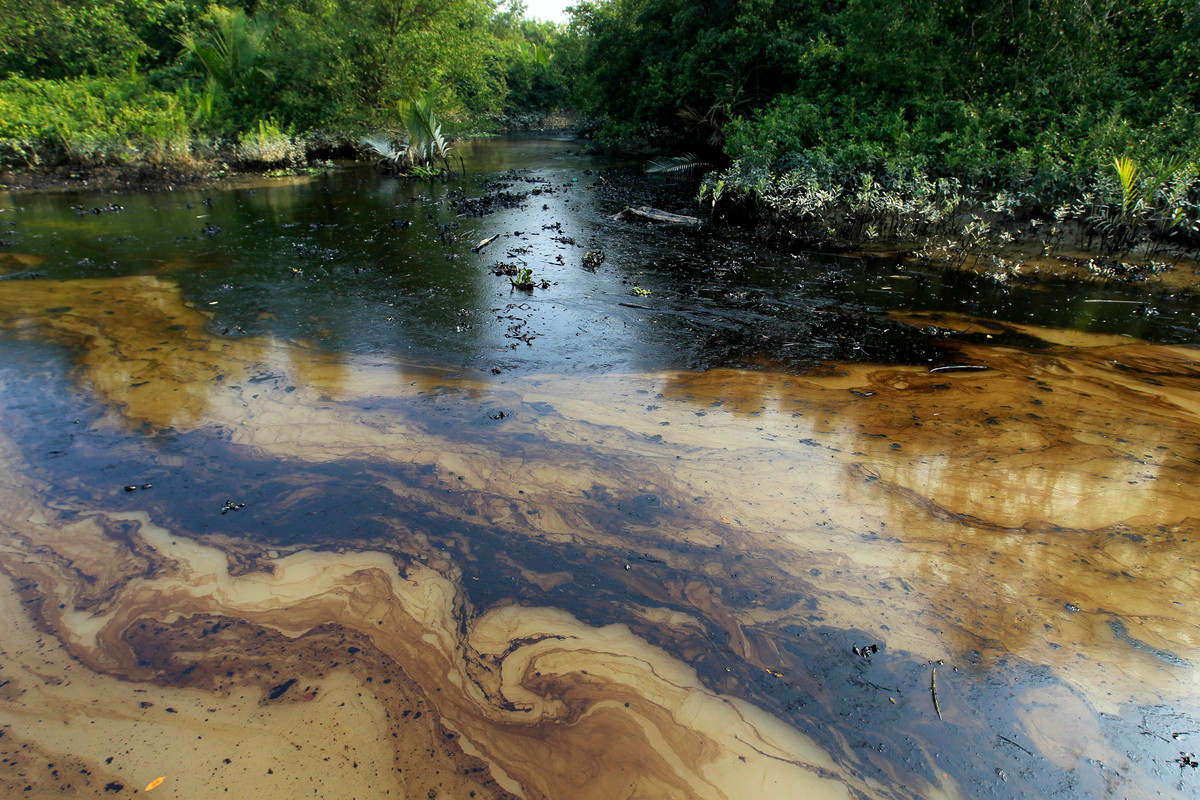
The breathing roots of mangroves are covered by a sheet of black oil on the banks of the Sela River in Sundarbans, Bangladesh, a UNESCO World Heritage site, after an oil-tanker carrying 350,000 litres of furnace oil sank in the river after it had been hit by a cargo vessel. The event is very threatening to the region’s flora and fauna.
Beyond the threats of the climate emergency outlined by the IPCC report, the ongoing impact of destructive human activities such as overfishing, offshore oil and gas drilling and plastic pollution is causing further devastation, affecting our oceans’ ability to cope with and soften the blow of the climate breakdown.
Thankfully, among all the bad news, we have a huge opportunity to protect the oceans. Governments are currently negotiating a Global Ocean Treaty at the UN. If a strong treaty is agreed, it could pave the way for a network of ocean sanctuaries, placing at least 30% of our oceans off-limits to human activity by 2030.
Such widespread protection would have a profound impact on ocean health, helping marine life recover from human pressures and thrive. Healthy, resilient oceans will continue to slow climate breakdown and support life on earth.
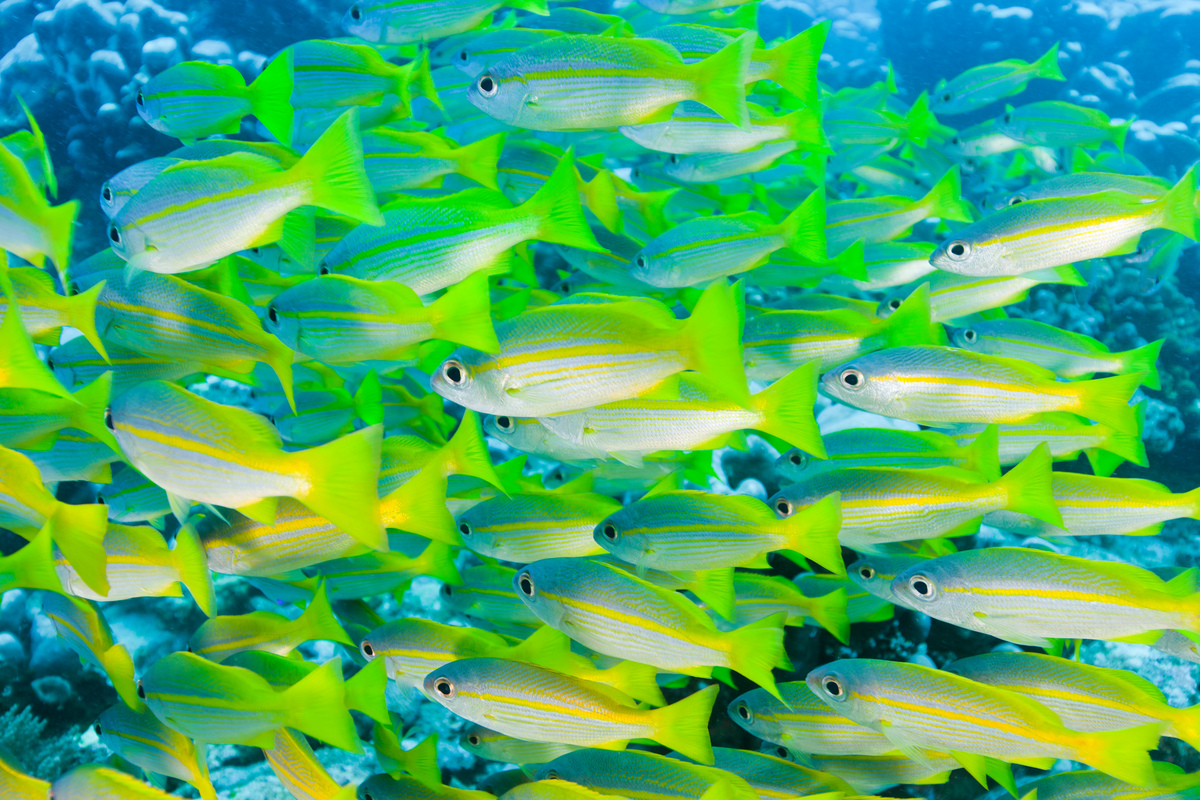
Schools of fish are seen on a reef at Raja Ampat.
Last month governments completed the penultimate round of treaty negotiations. Although many countries are supportive of the process, too few are displaying enough ambition to secure an agreement that will really count.
Today’s report is a wake-up call for those governments who continue to sleepwalk through the climate crisis. Governments need to prioritize the treaty negotiations, and countries like Canada must show leadership in the next round of negotiations this spring to secure a bold and impactful Global Ocean Treaty.
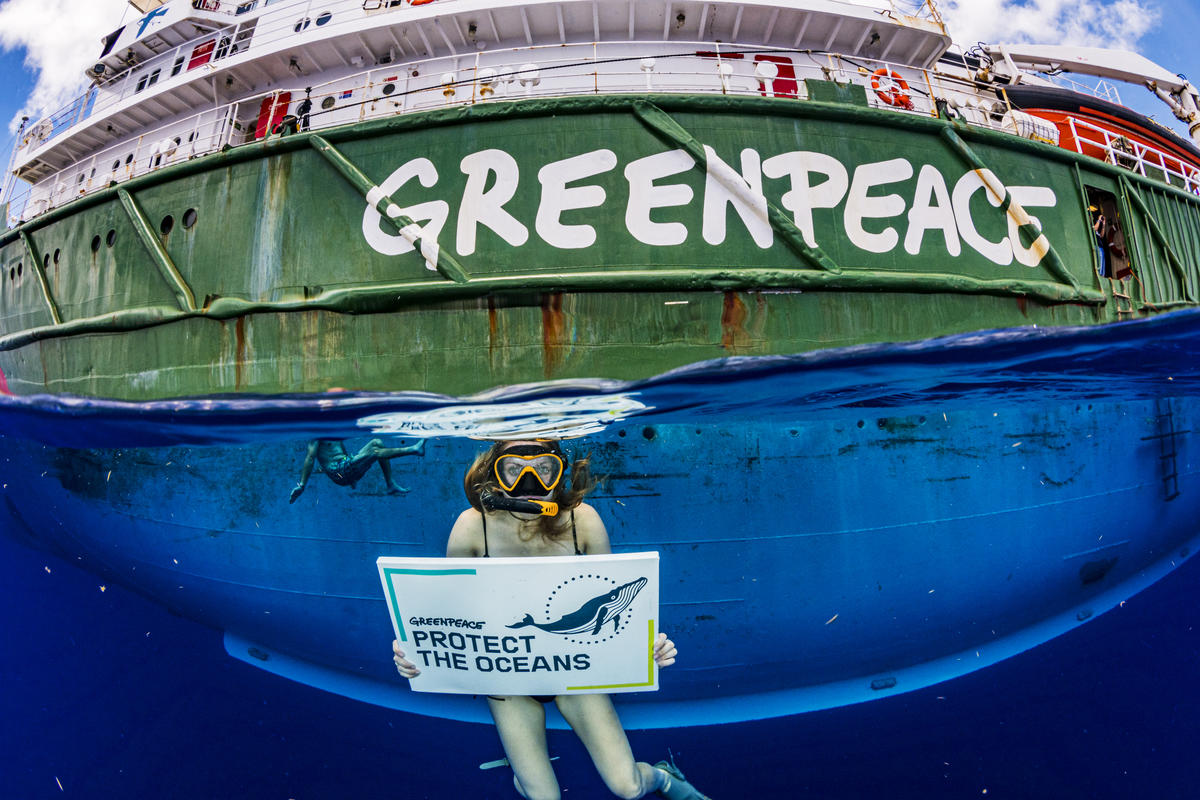
Communications Specialist Katie Nelson holds a message in the Sargasso Sea. The Greenpeace ship MY Esperanza is on an expedition in the Sargasso Sea, a unique region in the North Atlantic Ocean that is home to a diverse array of marine life, including loggerhead and green sea turtles.
At the same time, political and business leaders need to address the root cause of the oceans crisis. Efforts to transform energy systems away from polluting fossil fuels to 100% renewable energy must accelerate, and deforestation has to stop. Reducing carbon emissions to zero will ease climate pressure on our oceans, helping the benefits of a network of ocean sanctuaries to be fully realized, allowing marine life to get back to health.
There’s never been a better time to demand decisive action from our leaders. In Canada, tens of thousands of people have already called on the federal government to protect our global oceans through a strong treaty, and that number continues to grow. Unfortunately, Canada has yet to step up and break out of the mold of maintaining the status quo. Federal leaders have yet to make global ocean protection a priority in the With the Canadian election right around the corner, you can help secure a brighter oceans, climate and planetary future by voting for a leader who will listen to the science and have the courage to actually act on it. And if you haven’t already, add your name to almost two million people worldwide calling for a strong Global Ocean Treaty. If we look after the ocean, it will keep on looking after us!
By: Chris Thorne, Oceans Campaigner based in London, United Kingdom, and Sarah King, Head of Oceans and Plastics campaign, based in Vancouver, on Coast Salish Territories, Canada.
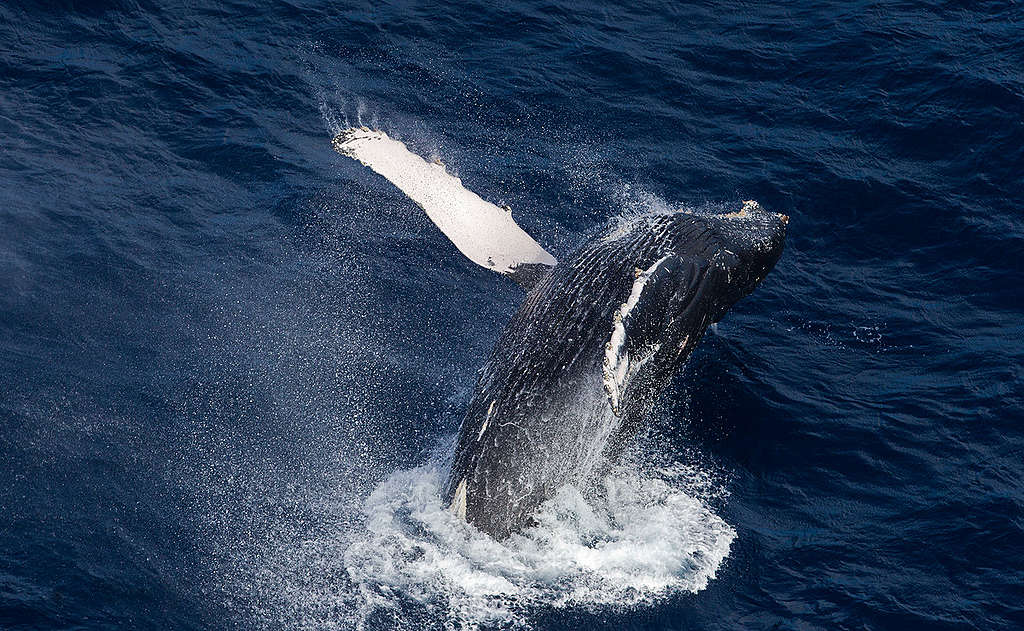
The seas provide half of our oxygen, food for a billion people, and a home for some of the most spectacular wildlife on Earth. But the impacts of climate change, pollution and destructive industries mean they’re in more danger than ever.
Take action
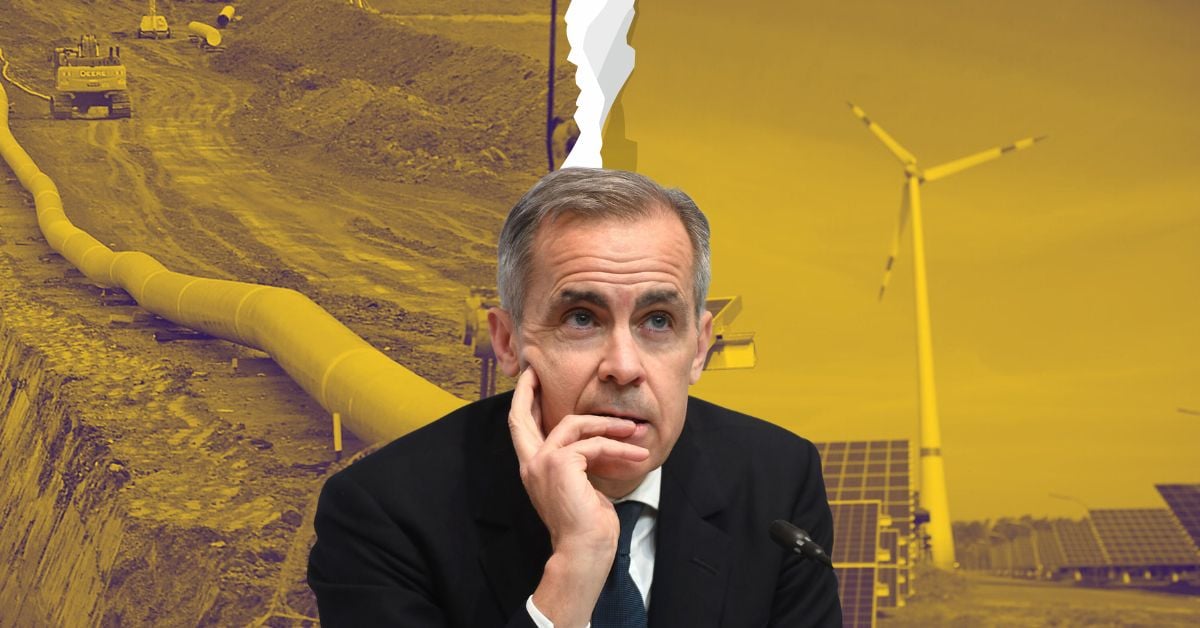
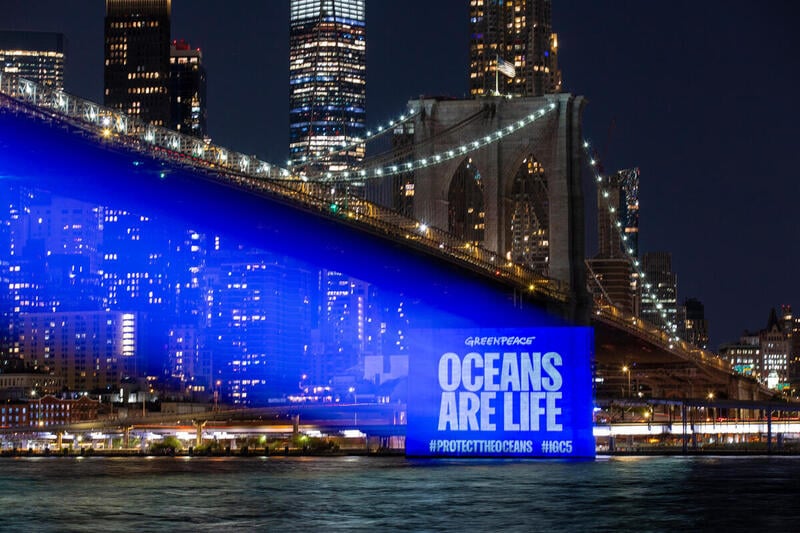
Discussion
I watched a film on TV this morn. about the loss of forests and it's inhabitants Plus in 50 years the coral reef will be gone, all because of fossil fuels! I'm 65 years old and I'm worried about it! What can I do?
I live in Trenton, Ontario. I know there's a Green Peace In Belleville, Ontario, I've done some writing for them for imprisoned persons. I would like to know their address so I could rejoin to try to make a difference in this world. Thank you!